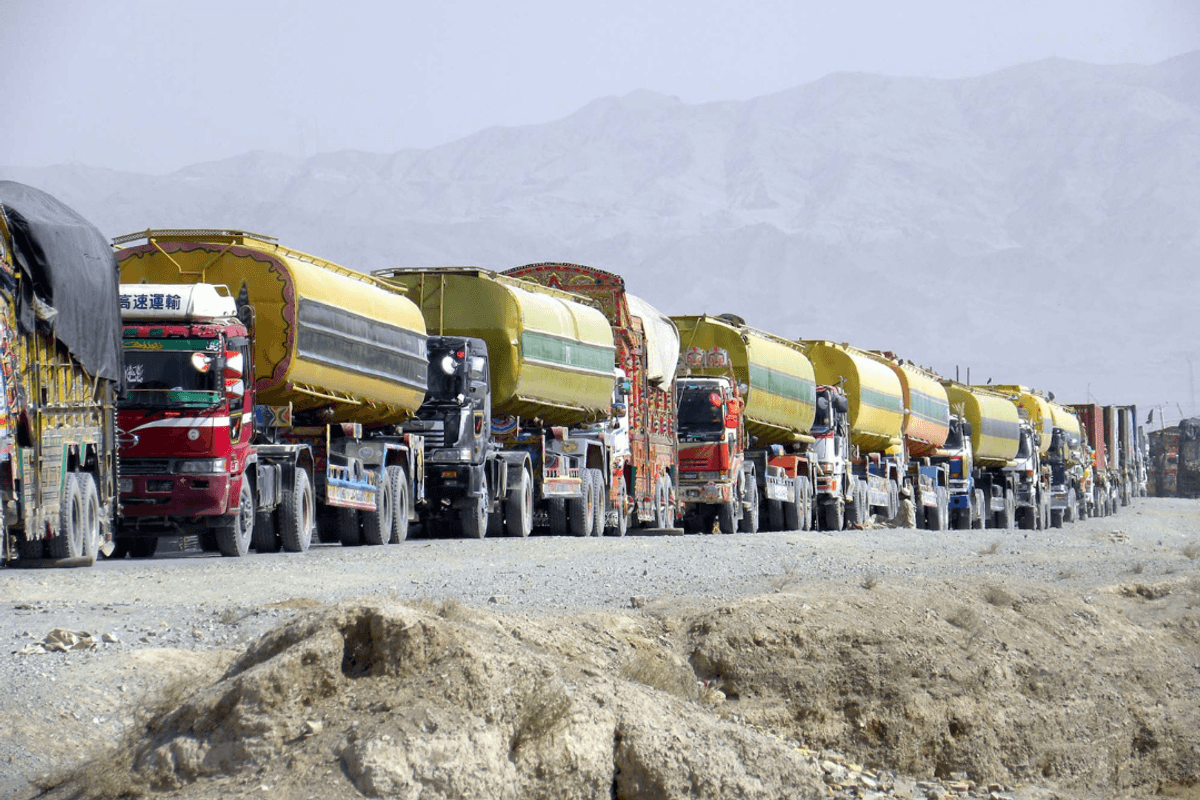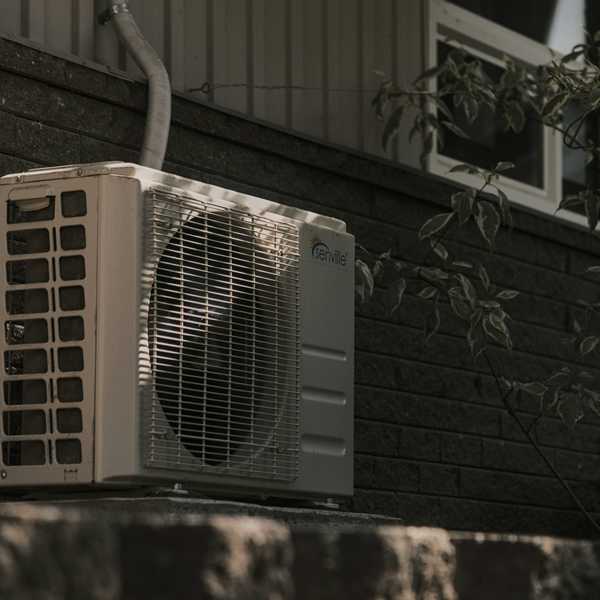Pakistan losing hundreds of millions of dollars due to Iranian oil smuggling
Around 2.8 billion liters oil is transported into Pakistan illegally from Iran every year

Javed Mirza
Correspondent
Javed Iqbal Mirza is an experienced journalist with over a decade of expertise in business reporting, news analysis, and investigative journalism. His work spans breaking news, editorial pieces, and in-depth interviews.

A queue of oil tankers in Pakistan
Shutterstock
The smuggling causes a loss of at least PKR 227 billion in revenue to the government
Financial transactions associated with the smuggling are intricate and involve various methods
Authorities have launched multiple crackdowns over the years, but the effect never seems to last
Despite multiple crackdowns by Pakistan’s law enforcement agencies, millions of liters of Iranian oil continue to be smuggled into the country every day, resulting in a loss of hundreds of millions of dollars in revenue to the government.
Around 2.8 billion liters oil is transported into Pakistan illegally from neighboring Iran every year, causing a staggering loss of at least PKR 227 billion ($800 million) in revenue to the government of Pakistan, according to a report prepared by the Intelligence Bureau (IB), Pakistan’s main civilian security agency.
Approximately 45% of the smuggled Iranian oil finds its way to the Sindh province, while 25% goes to both Punjab and Khyber Pakhtunkhwa. The remaining is consumed within the Balochistan province.
The workflow
The IB report said a whopping 95% of the Iranian oil that is smuggled into Pakistan operates under an informal system known as “token” or “parchi”.
“This system was initially established in 2021 by the Frontier Corps and local administration in Makran and Rakshan districts of Balochistan,” it said.
It was necessitated by the absence of oil marketing companies in most of the province. Under this system, fuel is imported from Iran for local consumption under a quota allotted by district administration via Zambad vehicles and boats. However, the permits are misused, and traders end up smuggling more fuel than officially allowed.
“Once inside Pakistan, the smuggled oil is stockpiled in underground storage facilities located in Gwadar, Panjgur, Mashkhail (Washuk), Chaghi, and Quetta. From there, it is distributed across the country,” the IB said.
While it is relatively easier to transport the smuggled fuel to Sindh via oil tankers and passenger buses, the process is more complex for Punjab.
Trucks that transport large quantities of vegetables and poultry to Punjab are fitted with huge fuel tanks having capacity of up to 2,000 liters. These tanks are fitted with fuel pumps and directly feed the engine. Around 700 liters of this fuel is consumed for the round trip from Balochistan to Punjab, the rest is dumped at various depots in Punjab.
These trucks carrying fruits and vegetables pass through the Koh-e-Suleman mountain range and access Punjab via Dera Ghazi Khan. Enforcement agencies have no jurisdiction in Koh-e-Suleman. It is kind of the “Ilaqa Ghair” — a sort of no-go area where the prevailing laws are those of the tribes residing there.
The report, a rare public probe of the longstanding illegal trade, also said that the financial transactions associated with the smuggling of Iranian oil are intricate and involve various methods.
“Bulk deals are often paid for in US dollars routed through third countries. Hawala/hundi dealers in Pakistan receive these payments, which are then confirmed abroad before the oil is delivered,” it said.
For smaller supplies, Pakistani buyers pay Iranian suppliers in Iranian toman at the borders. Barter arrangements also constitute a minor share — around 3-5% — of the payment methods. Additionally, hand-to-hand cash exchanges and even payments in gold bullion are used.
An estimated 2.2 to 2.4 million people in Balochistan depend on Iranian oil smuggling for their livelihoods, and locals in the terrorism-hit southern region of the province are deeply involved in the sale and purchase of smuggled oil.
Additionally, militants and terrorist groups operating in Makran and Rakshan divisions reportedly receive a share of the profits from this illicit trade, the IB said.
The impact
Petroleum dealers say many people who sell fuel at roadsides mix Iranian petrol with kerosene, naphtha and other oil ingredients. However, several in Balochistan and some areas of Punjab directly sell Iranian petrol through dispensers.
Fuel smuggling is a thriving business in Iran, where the government heavily subsidizes the products. According to estimates by Iranian officials, last year, up to 11 million liters of fuel was smuggled out of their oil-rich country each day.
According to the IB, oil smuggling into Pakistan peaked in 2023, with approximately 10.1 million liters per day entering the country. However, a crackdown by the then caretaker government reduced the number to 5-5.3 million liters.
Unfortunately, after the general elections earlier this year, the Iranian oil smuggling has resurged to an estimated 8.9 million liters daily.
During July-August, total sales of petroleum products in Pakistan fell 12% to 2.4 million tons compared to the same period last year. Industry analysts attributed this decline to increased smuggling from the neighboring country.
This smuggling, in turn, affects the sales and revenues of the oil marketing companies (OMCs) and local refineries.
Zahid Mir, CEO of Pakistan Refinery Limited, said at a corporate briefing last month that the smuggled fuel was not only causing massive revenue loss to the government, but is also hurting legitimate businesses.
“Inflow of smuggled fuel impacts demand assessment for refineries and OMCs, which unnecessarily complicates import planning. Currently, supplies exceed demand, creating a glut for local refineries,” he said.
Abdul Sami Khan, Chairman of the Pakistan Petroleum Dealers Association (PPDA) told Nukta that legitimate dealers can’t compete with smuggled fuel as it is cheaper than the locally sold fuel.
Crackdowns and corruption
Authorities in Pakistan have launched multiple crackdowns over the years to counter the illegal trade, but the effect never seems to last.
“There is a reason that the diesel smuggling to Punjab and Khyber Pakhtunkhwa continues,” a senior Pakistan Customs official told Nukta on the customary condition of anonymity.
“The nitty-gritty in the laws and jurisdictions as well as patronage by influential circles has rendered [Pakistan] Customs almost helpless against smuggling,” he said.
Last year, authorities set up 54 check posts across the country to crackdown on smuggling but the move failed to produce significant results due to excessive bribes and involvement of law enforcement officials, according to the IB report.
A rigorous anti-smuggling campaign is going on even right now, reportedly under the monitoring of the military intelligence and internal investigations have been initiated against officers and officials involved in fuel smuggling.
The IB Bureau has prepared a list of 100 officials from Pakistan Customs, police, levies, Civil Defense Office and the district administration reportedly involved in corrupt practices.
As per the report, 105 Iranian oil smugglers, 100 officials and 533 illegal or unlicensed fuel station owners are involved.
However, a visible impact of the latest crackdown is yet to be seen.
“These crackdowns don’t lead to any change. A new anti-smuggling campaign simply means a ‘revision of rates’,” said a trader asking not to be named, referring to the corrupt practices.
“The anti-smuggling campaigns are always on. And yet markets are flooded with imported items, most of which are smuggled,” he said.







Comments
See what people are discussing